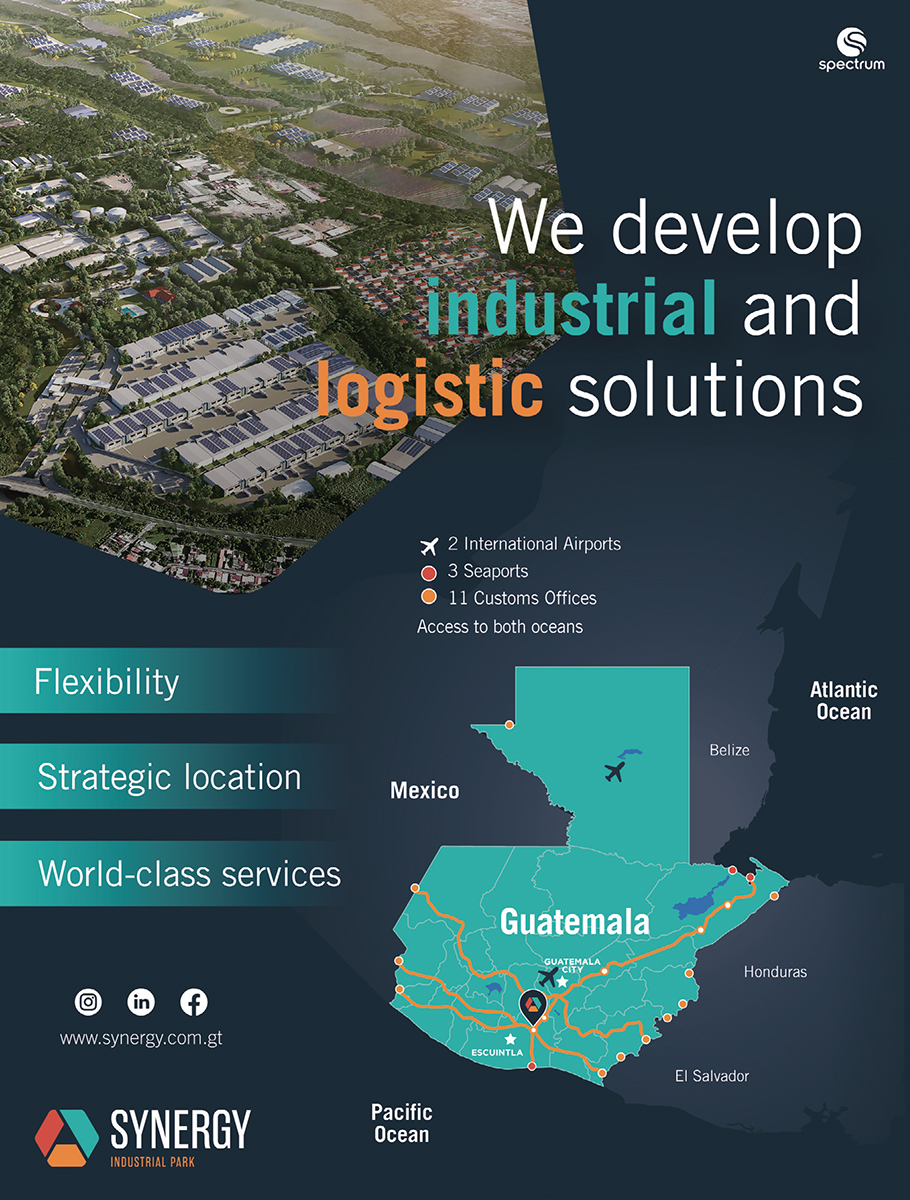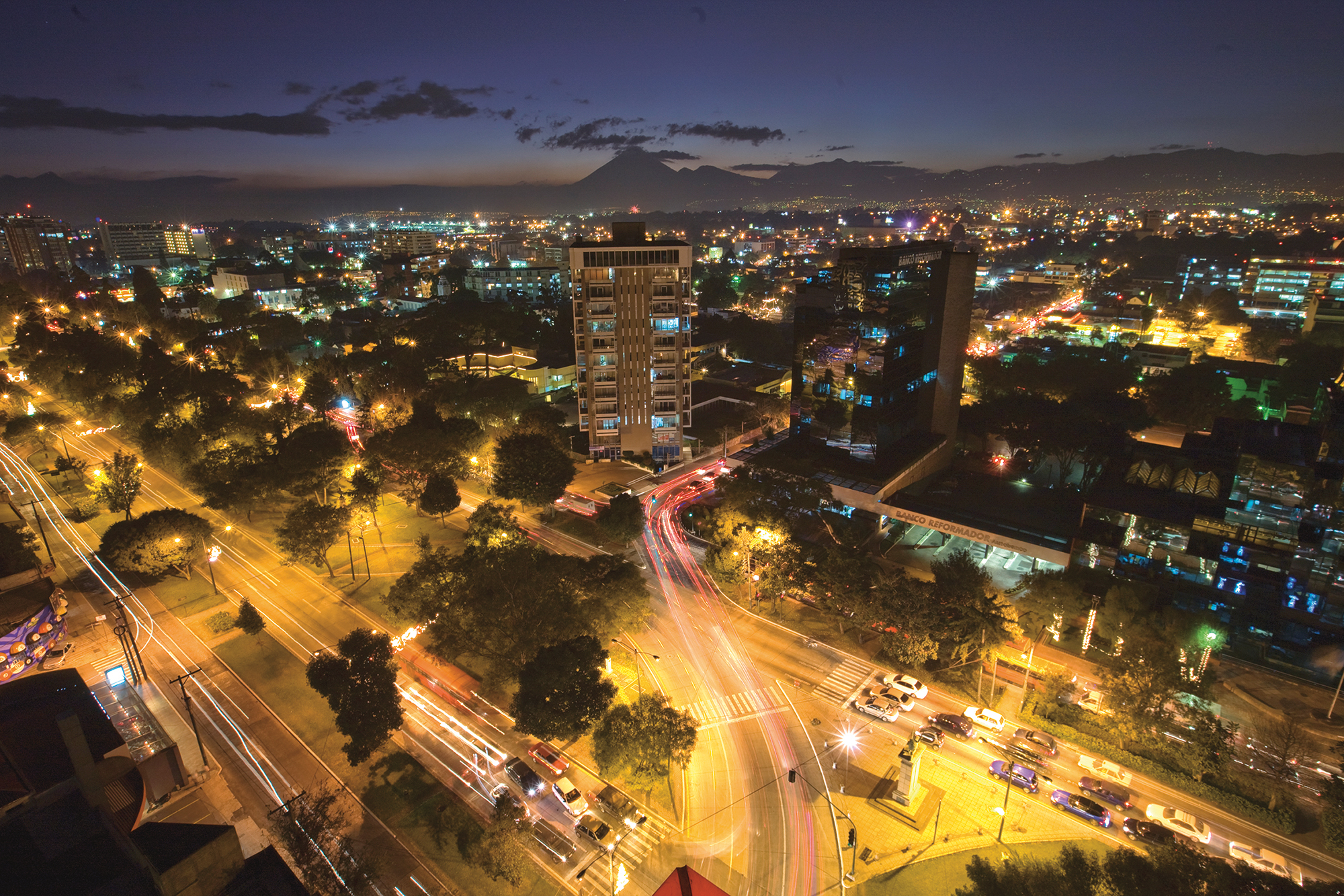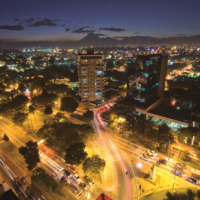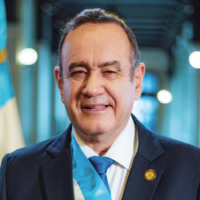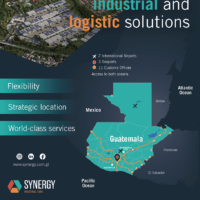Moving a country forward is not just a matter of dreaming. Over the past four years, pandemic included, Guatemala has followed a road map for progress, creating financial conditions and legal structures that have fueled significant economic expansion.
In the words of President Alejandro Giammattei, the “rails have been laid down” so that the train of progress can advance more rapidly.
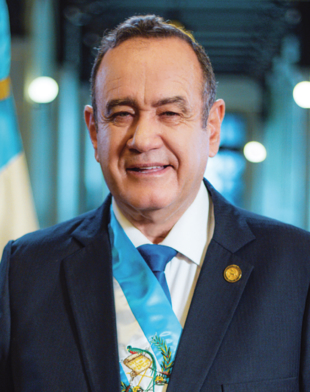
Guatemala has become a more attractive destination for inward investment with greater legal guarantees and simplified bureaucracy. In turn, the influx of foreign capital is helping the country to become a bigger exporter.
Traditional industries such as tourism have been given an investment boost, and the vision of making Guatemala a significant nearshoring destination is taking hold as the public and private sectors have come together to build a more dynamic business environment.
For the president, whose mandate ends in January 2024, it was the COVID-19 pandemic that brought the government and private business closer together in a strategic partnership to keep Guatemala moving forward. Remarkably, after the initial stoppages and disruption from the worldwide impact of the pandemic, Guatemala registered gross domestic product growth of 8% in 2021.
But, even more importantly, a package of reforms was already in motion to transform the business environment. One-stop shops were created for companies wishing to export, others that import and for foreign businesses looking to invest in Guatemala. The business registry process has been digitalized 100%, with the promise that setting up a company in the country can now be done in three days.
To offer meaningful legal guarantees to foreign investors, Guatemala has introduced the Law for the Promotion of Foreign Capital Investment, which offers special tax treatment for companies and individuals that meet specified requirements and conditions. The guarantee lasts for between three and 10 years, depending on the nature of the investment.
Separately, a new Free Zone Law has led to a rapid expansion of Special Public Economic Development Zones (ZDEEP). Eighteen ZDEEP are now in existence or being developed, allowing companies operating there a 10-year exemption from income tax and a duty-free regime in terms of imports and equipment required to carry out their production activities.
One of these sites being developed in the south of the country is Synergy Industrial Park, a hugely ambitious development that, besides state-of-the-art business units, also includes residential development, vacation housing, education facilities, hotels and entertainment complexes. The project managers calculate that Synergy will eventually provide 1,500 jobs for the local community.
In the west, by the Mexican border, the free-zone policy has seen the arrival of Japanese auto parts giant Yazaki, which has become the first vehicle component maker to operate in Guatemala. The plant in Ayutla is one of 600 Yazaki facilities worldwide, producing parts including sensors and data systems for traditional autos as well as hybrid and electric vehicles.
Guatemala’s main exports are still agricultural products, including coffee and spices, but the vision is to dynamize the manufacturing sector through increased nearshoring deals with companies from North America and elsewhere. The clothing, technology and light manufacturing sectors have all benefited from increased inward investment in recent years, with companies including Nextil Group, Emergent Cold and manufacturing giant Tata moving production to the country.
Indeed, the country’s administration celebrated earlier this year reaching its target of $5.7 billion in foreign direct investment (FDI) over its four-year mandate. Money invested in Guatemala allows the country to turn its trade balance in a favorable direction. The year 2022 saw a 15.2% rise in exports; Giammattei predicts that the country’s total exports will have doubled by the time he leaves office compared with four years ago.
The outgoing administration also leaves a diplomatic legacy it says has succeeded in generating greater confidence in the country thanks to closer relations with major global democracies.
Under the president’s policies, Guatemala has signed a free trade agreement with Israel and is set to enter a deal with South Korea. It has also shown support for Taiwan and offered one of Latin America’s few clear voices of support for Ukraine in response to Russia’s invasion of its neighbor. In terms of diplomacy’s dividends, Guatemala’s government points to the boost in FDI and improved connectivity, with at least seven more international airlines flying into the country than before the pandemic.
“Being on the right side of history is a way to generate trust with the international community; it doesn’t all come down to whether or not you sign a free trade agreement with someone,” concludes Giammattei.
